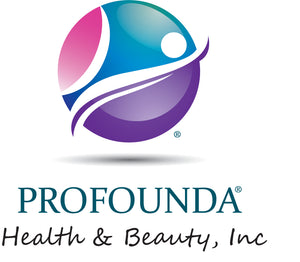Nosebleeds
 First Aid for Nosebleeds
First Aid for Nosebleeds
If you get a nosebleed, sit down and bend forward. Sitting is preferable to lying down, since keeping the head above the level of the heart will help reduce the bleeding. Bending forward is also important. It lets the blood drain out through the nose rather than down the throat.
To stop a nosebleed, you should:
1. Pinch all the soft parts of the nose together between your thumb and index finger.
2. Press firmly toward the face - compressing the pinched parts of the nose against the bones of the face.
3. Hold the nose for at least 5 minutes (timed by the clock). Repeat as necessary until the nose has stopped bleeding.
4. Sit quietly, keeping the head higher than the level of the heart; that is, sit up or lie with the head elevated. Do not lay flat or put your head between your legs.
5. Apply ice (crushed in a plastic bag or washcloth) to nose and cheeks
Nosebleed facts
-
The definition of a nosebleed is simply bleeding from the blood vessels in the nose. The medical term for nosebleed is epistaxis.
-
Nosebleeds are common due to the location of the nose on the face, and the large amount of blood vessels in the nose.
-
The most common causes of nosebleeds are drying of the nasal membranes and nose picking (digital trauma), which can be prevented with proper lubrication of the nasal passages and not picking the nose.
-
Most nosebleeds can be stopped at home.
-
Consult a doctor for a nosebleed if bleeding cannot be stopped, there is a large amount of blood lost, or you feel weak or faint.
-
Chronic nosebleeds or persistent nosebleeds may need to be stopped with a heating instrument or chemical swab (cautery of the blood vessel that is causing the trouble), or application of a topical medicine called thrombin that promotes local clotting of blood.
-
A doctor may use nasal packs to stop nosebleeds when conservative measures fail.
-
Do not take aspirin or other blood thinning products when you get a nosebleed (if they are doctor-prescribed, consult your doctor before stopping any medication).
What causes Nosebleeds?
The nose is a part of the body rich in blood vessels (vascular) and is located in a vulnerable position protruding on the face. Nosebleeds can occur spontaneously when the nasal membranes dry out and crack. This is common in dry climates, or during the winter months when the air is dry and warm from household heaters. People are more susceptible to a bloody nose if they take medications that prevent normal blood clotting (warfarin[Coumadin, Jantoven], clopidogrel [Plavix], aspirin, or any anti-inflammatory medication). In this situation, even a minor trauma could result in significant bleeding.
The incidence of nosebleeds is higher during the colder winter months when upper respiratory infections are more frequent, and the temperature and humidity fluctuate more dramatically. In addition, changes from a bitter cold outside environment to a warm, dry, heated home result in drying and changes in the nose which make it more susceptible to bleeding. Nosebleeds also occur in hot, dry climates with low humidity, or when there is a change in the seasons. The following risk factors predispose people to nosebleeds:
-
Infection
-
Trauma, including self-induced by nose picking (this is a common cause of nosebleeds in children)
-
Allergic and non-allergic rhinitis
-
Hypertension (high blood pressure)
-
Use of blood thinning medications
-
Less common causes of nosebleeds include tumors and inherited bleeding problems
-
Hormonal changes during pregnancy may increase the risk of nosebleeds. Continue Reading
How Rhinase can help?
Rhinase helps moisturize nasal passages to prevent the drying that causes nosebleeds in many cases from allergies, allergy medicine (decongestants and steroids), low humidity or CPAP and oxygen therapy.
Rhinase doesn't only rely on sodium chloride to moisten nasal passages. Saline sprays were designed to be flushes and to be isotonic (0.9%) and really dont moisturize as good as they could. Rhinase does contain both sodium and potassium salt but at a hypotonic level so no bad 'salt taste', but there is enough to work naturally with the bodies sodium potassium pump which controls moisture on a cellular level. R hinase also contains dual wetting agents to both create a protective barrier and spread out the salts throughout the nose in an effective way. The pH of Rhinase is 6.2 which is the physiologic pH of the nose and not the pH of 7.0 like saline sprays so less stinging with Rhinase.
- Choosing a selection results in a full page refresh.



 First Aid for
First Aid for